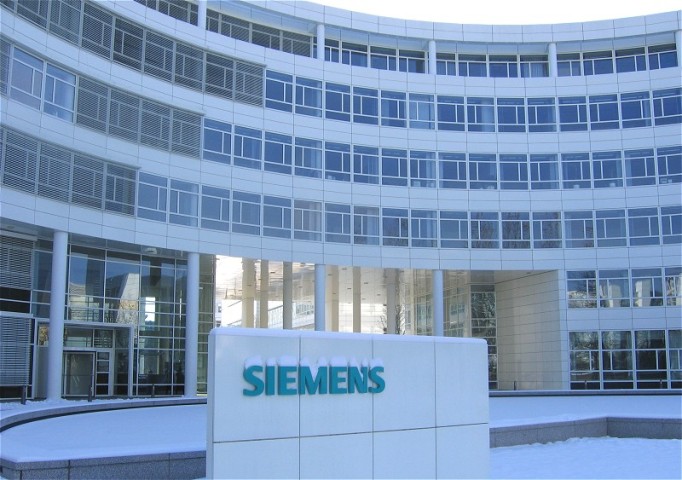Siemens Gamesa launches social impact initiatives to fight against COVID-19
In total, the company allocated funds of €350,000 to several initiatives in African countries severely impacted by COVID-19.

- Country:
- Morocco
The company’s social commitment newly launched Global Impact Project special COVID-19 edition supports Africa’s most vulnerable communities; Siemens Gamesa (SiemensGamesa.com) funds rapid response initiatives benefitting Midelt’s rural communities; Siemens Gamesa’s local team’s step-up to support Moroccan relief efforts.
Siemens Gamesa Renewable Energy (SGRE) has launched a series of social impact initiatives around the world, to contribute to the fight against COVID-19. The company provided €1 million worth of healthcare supplies and other relief to hospitals and communities.
In total, the company allocated funds of €350,000 to several initiatives in African countries severely impacted by COVID-19. Given the company’s strong presence and operations in Morocco, Siemens Gamesa has dedicated a large share of the funds towards social actions driven in the country. These initiatives supported a great number of vulnerable communities through food and vital sanitary supplies’ distribution, a donation of containers to serve as shelter, and even a blood donation by volunteering employees of the company’s blade factory in Tangier.
"Thanks to the various funds granted, we have been able to support vulnerable communities in Morocco as part of a responsible and sustainable approach to the fight against the Covid-19 pandemic in the country," says Sonia Adnane, Director Communications and Institutional Affairs Africa at Siemens Gamesa. "Many social initiatives are led by employees who are not only passionate about the environment but also about social responsibility and sustainable development towards the communities in which we operate. And it is the strength and unity of such commitment that ultimately benefits everyone: our company, our employees, the planet, our customers and our communities," she adds.
Siemens Gamesa funded initiatives
— Rapid response to Midelt’s rural communities
The city of Midelt is home to 55,000 inhabitants that depend largely on tourism and traditional industries. As a result of the pandemic and confinement measures around the world, the region’s main economic activities have come to a standstill, increasing food shortages in an area that is already three times above the national poverty level of 4.8%.
In collaboration with the Moroccan NGO Amis des Écoles, with whom the "Women for Women in Need" initiative launched in Morocco by Siemens Gamesa employee volunteers has already worked in Oussertek to benefit a vocational training centre, Siemens Gamesa has implemented a project to distribute food and vital hygiene products worth more than 35,000 euros to severely affected communities in the Midelt region... The donation has helped 1,250 households stay safe and healthy during the global crisis and through the month of Ramadan.
SGRE Impact Program — Special COVID-19 edition
— Relief for vulnerable regions Azilal, Boujdour, Chichaoua and Taroudant
In collaboration with the High Atlas Foundation, Siemens Gamesa distributed food baskets and hygiene products as well as warm clothing for the benefit of 4,000 people. As part of this collaboration, 5,000 almond and walnut trees were provided to 500 households in vulnerable areas, offering more than 4,000 people new sources of income while making a healthy contribution to their diet. 40,000 was deployed through the SGRE Impact Programme, in line with the sustainable development objectives SDO 3 (Good Health and Well-being) and SDO 15 (Preserving and Restoring Terrestrial Ecosystems).
Locally driven relief actions
Local support from Tangier blade factory
Inaugurated in 2017, the Tangier wind turbine blade factory was the first manufacturing unit in Africa and the Middle East and has created over 750 direct jobs, employment and business opportunities enabling the province of Fahs Anjra to become an integral part of the local economy. To help communities in the region, the Siemens Gamesa Tangier blade factory team, in collaboration with the Melloussa Association for Local Development (AMDL) and the local authorities, distributed food baskets and hygiene products for the benefit of 1,000 households in the region for a total value of 24,000 euros. — Pop-Up Shelter for local authorities in Tangier
In collaboration with the Agence de Promotion et Développement du Nord (APDN) and local authorities of the Fahs Anjra region, Siemens Gamesa Morocco donated 49 Containers, including prefabricated showers, toilets, sleeping facilities, and kitchen units, in addition to 121 lockers, worth over €100,000 to help support vital infrastructure in the region of Tangier.
— Siemens Gamesa employees volunteer for a blood donation
End of March, 92 employees from the Tangier plant contributed to national solidarity to save lives by participating in the blood donation campaign launched by the health and safety department. The factory’s participation rate of 35% exceeded by far the international and national averages of 4% and 0.99% respectively.
“The health and safety of our employees are always the highest priority at Siemens Gamesa. Beyond the company, we also consider it our duty to act responsibly and to do our part to protect society, especially in these challenging times,” says Johannes Pieter Cools, Managing Director at Siemens Gamesa Morocco. “We could not be prouder of the sense of responsibility demonstrated by our local teams towards communities in need. We hope these acts of social commitment will lay the foundation for a greater spirit of community to support long-term sustainable development in the region.”
(With Inputs from APO)
- READ MORE ON:
- COVID-19
- Siemens Gamesa Renewable Energy
- Morocco
- Sonia Adnane
- healthcare
ALSO READ
Uncovering COVID-19 Procurement Scandals: Interim Report Reveals Shocking Details
Army's COVID-19 Vaccine Policy Reversal Sparks Reenlistment Surge
Justice Served: Life Sentence in COVID-19 Ambulance Rape Case
Trump's Controversial COVID-19 Website and Lab Leak Theory
CDC's Booster Shot Debate: Navigating Covid-19 Recommendations










